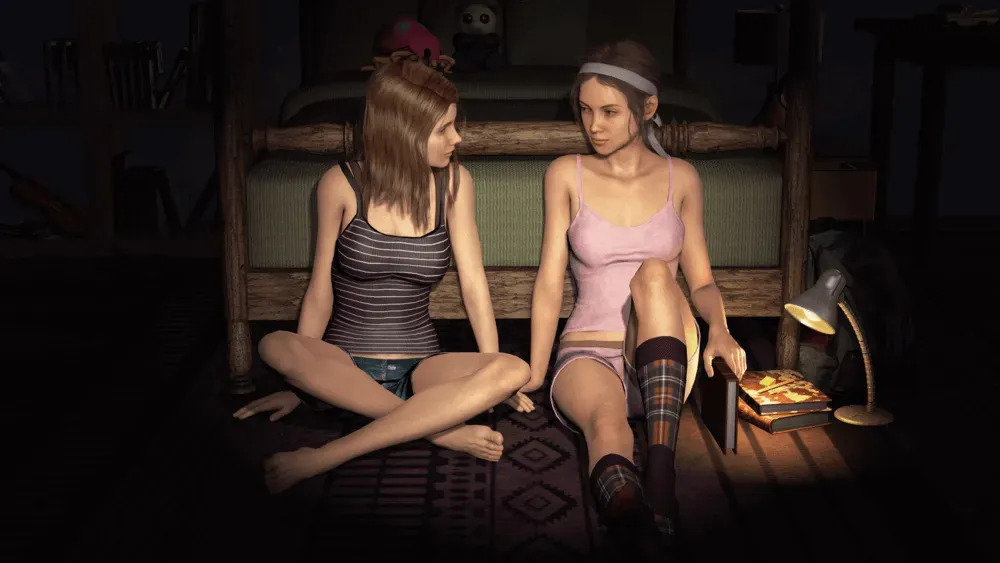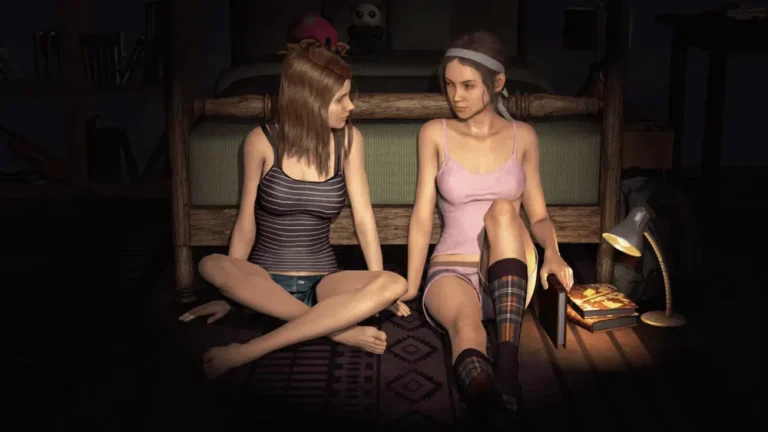
Short Sad Stories
Play Short Sad Stories
Short Sad Stories review
Explore the emotional narrative and gameplay of Short Sad Stories
Short Sad Stories is a captivating visual novel game that immerses players in the emotional journey of Alice, a dreamy girl caught between reality and fantasy. This game combines storytelling with impactful decision-making, allowing players to shape complex relationships and navigate unexpected dilemmas. In this article, we explore the core elements of Short Sad Stories, highlighting its narrative depth, gameplay features, and the emotional resonance that makes it stand out in the visual novel genre.
Understanding the Narrative of Short Sad Stories
Ever found yourself scrolling through your game library, tired of the same old high-octane action or sprawling open worlds, and just craving something that feels… real? Something that tugs at your heartstrings instead of your trigger finger? 😥 That’s exactly where I was before I discovered the Short Sad Stories game story. It’s a visual novel that doesn’t just tell you a tale; it invites you to live inside one, with all its beautiful, heartbreaking complexity.
This isn’t your typical game. It’s an experience, a deep dive into the human condition. At its core, the Short Sad Stories game story is a masterclass in emotional storytelling, and it all revolves around one incredibly relatable character. Let’s pull up a chair and really understand the narrative that has captivated so many players.
Who is Alice? The Protagonist’s Emotional Journey
Meet Alice. 🎀 The Alice character in Short Sad Stories is not a superhero or a chosen one destined to save the universe. She is, refreshingly, us. She’s navigating the messy, often painful transition into young adulthood, grappling with a past that weighs heavily on her present.
Her emotional journey as a game protagonist is the true engine of this experience. We meet her at a crossroads, still reeling from a significant personal loss. The game brilliantly uses a dual-narrative structure: we see her current, somewhat muted reality, and we are also plunged into her vibrant, idealized memories and fantasies. This constant push and pull is what makes the Alice character in Short Sad Stories so compelling. You feel her struggle to reconcile what was, what is, and what could be. One moment you’re sharing in her joyful flashbacks, and the next, you’re right there with her in a quiet, lonely room, feeling the weight of her silence. It’s this authenticity that forges a powerful connection between the player and her story.
Key Themes: Love, Loss, and Personal Growth
If you’re looking for a game that shies away from difficult subjects, look elsewhere. The visual novel emotional themes in Short Sad Stories are its beating heart. The developers lean into heavy, universal concepts, treating them with the respect and nuance they deserve.
Central to everything is the theme of Short Sad Stories love and loss. This isn’t just about romance; it’s about the love for family, for friends, and for the past versions of ourselves we’ve had to leave behind. The loss associated with that love is the catalyst for everything. It’s the ghost at the feast, the empty chair at the table. 😔
But it’s not all sorrow! Woven intricately with these themes is the powerful thread of resilience and personal growth. The game asks a difficult question: how do we piece ourselves back together after something breaks? It explores the dilemmas of moving on—is it a betrayal of memory to be happy again? The narrative doesn’t provide easy answers, but it guides you, through Alice, to find your own. This exploration of mature visual novel emotional themes is what elevates the game from a simple story to a profound personal reflection.
How Player Choices Shape the Story
This is where Short Sad Stories truly separates itself from a linear novel or movie. The game narrative choices impact is immense and deeply woven into the fabric of the experience. This is a visual novel with branching storylines, meaning the decisions you make, big and small, genuinely alter the course of Alice’s life and her relationships with other characters.
You’re not just watching her story; you’re actively participating in it. Will you encourage Alice to open up to a new friend, or will you validate her desire to retreat into herself? 🤐 These choices feel weighty because they are built upon the strong foundation of her character. You understand her motivations and fears, so deciding what she should do next becomes a personal ethical dilemma. The game narrative choices impact everything from the immediate dialogue to which memories she revisits, ultimately determining which of several endings you will experience. This system of branching storylines in a visual novel ensures that your playthrough is uniquely yours.
Pro Tip: Don’t try to “game” the system on your first playthrough. Go with your gut. The most authentic emotional experience comes from making choices that feel right to you in the moment, not from trying to steer toward a specific ending.
Example of a Key Decision Point:
Early in the game, Alice is invited to a small gathering by a supportive coworker. The choice seems simple: “Accept the invitation” or “Politely decline.” 💌
- Choosing to accept opens up a new storyline. You meet characters who can become pillars of support for Alice, leading to scenes where she slowly begins to engage with the world again. It can set her on a path toward healing and new connections.
- Choosing to decline reinforces her isolation. It keeps the narrative focused inward on her grief and fantasies, potentially leading to a more introspective but also more melancholic conclusion where she remains stuck in the past.
This single decision acts as a major branch point, dramatically altering the supporting cast and the emotional tone of the subsequent chapters. It’s a perfect example of how a seemingly small social decision can have a massive game narrative choices impact.
| Your Choice | Potential Short-Term Outcome | Long-Term Narrative Impact |
|---|---|---|
| Encourage Alice to be open | Unlocks new, supportive dialogues with characters like her coworker, Ben. | Paves the way for endings focused on recovery, new beginnings, and accepting the past without being chained to it. |
| Support Alice’s desire to withdraw | Scenes become more solitary, focusing on her internal monologue and memories. | Leads to endings that are more bittersweet or tragic, emphasizing the difficulty of moving on and the power of memory. |
The brilliance of Short Sad Stories is that it makes you care deeply before it makes you choose. You’re invested in Alice’s emotional journey as a game protagonist because you understand her pain and her hope. Your choices matter because she matters to you. This isn’t just a game you play; it’s a story you feel, a journey you help shape, and an emotional experience that is likely to stay with you long after you’ve put down the controller. 🕊️
Short Sad Stories offers a rich, emotionally charged visual novel experience that invites players to engage deeply with its characters and narrative. Through Alice’s journey and the impactful choices players make, the game explores themes of love, resilience, and personal growth. Whether you enjoy immersive storytelling or decision-driven gameplay, this game provides a meaningful and memorable experience. Dive into Short Sad Stories to discover how your choices can shape a compelling tale of hope and challenge.









